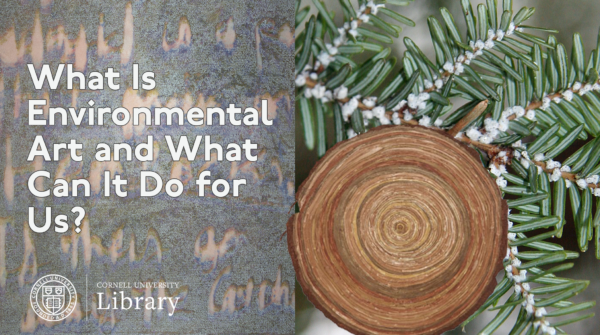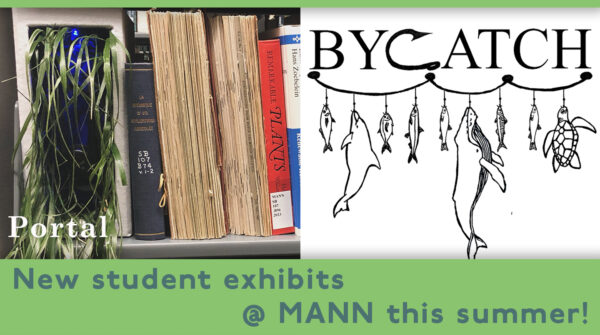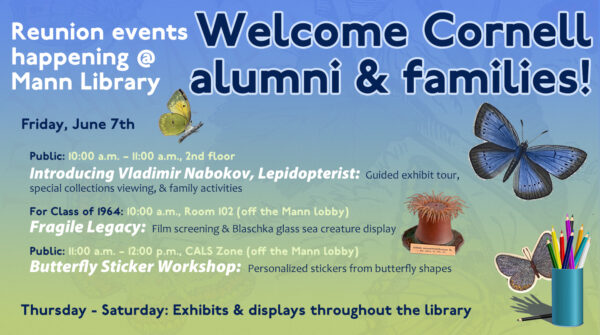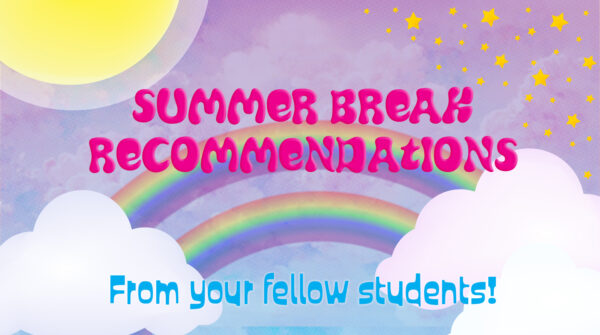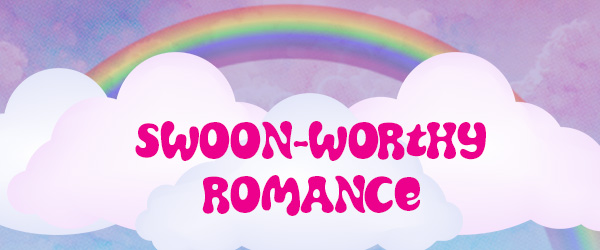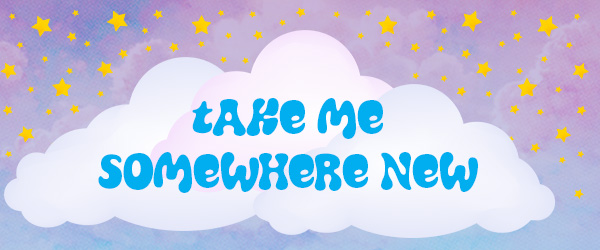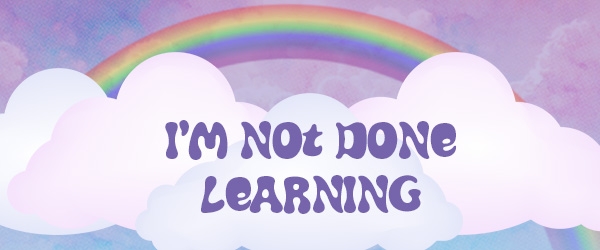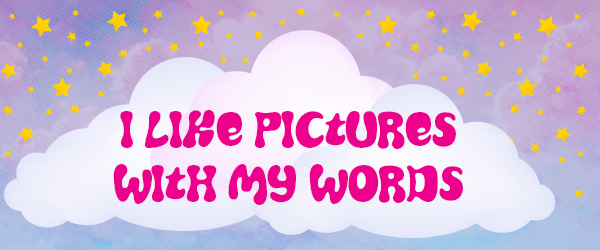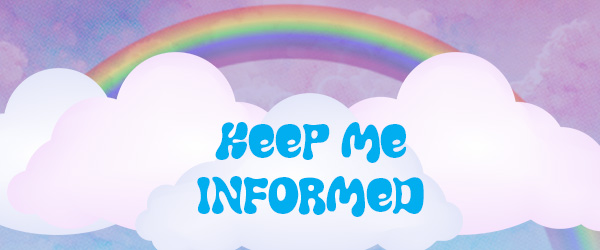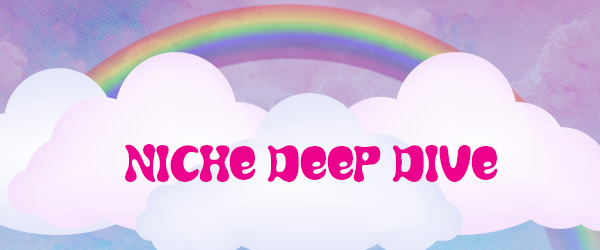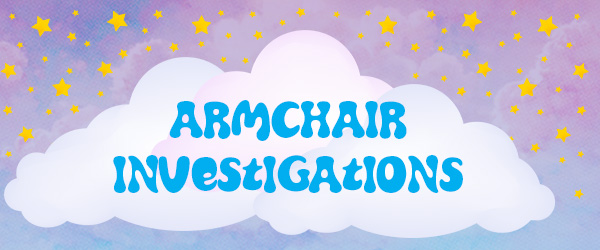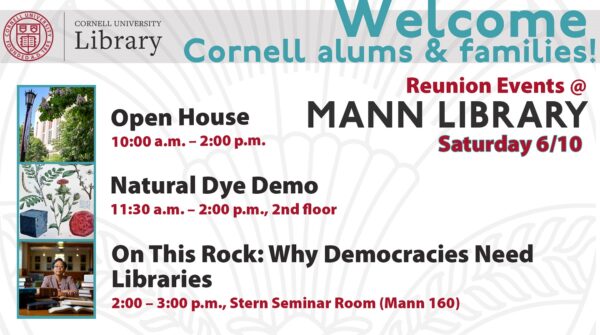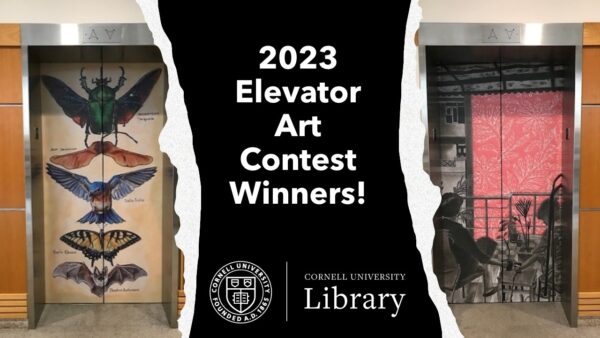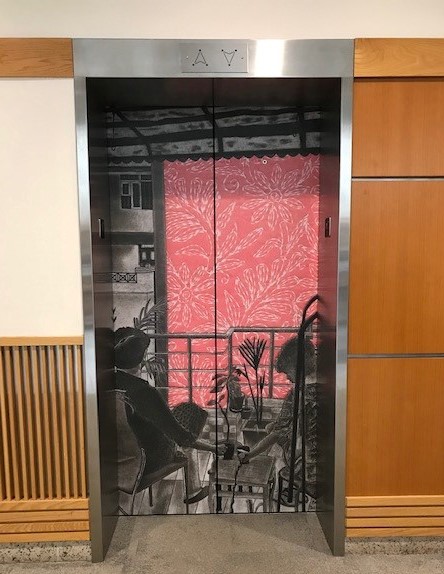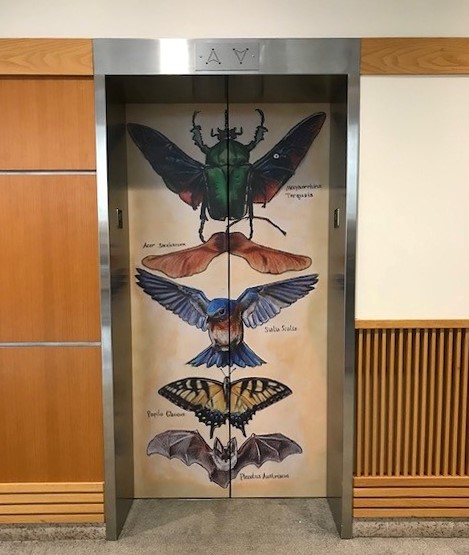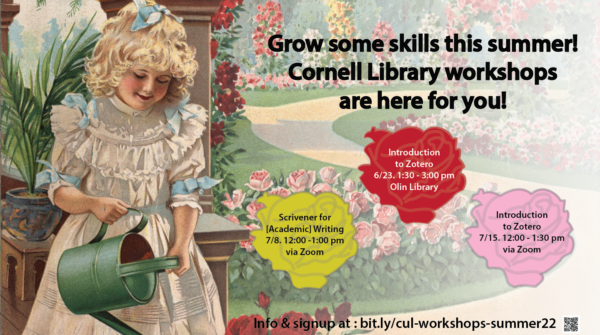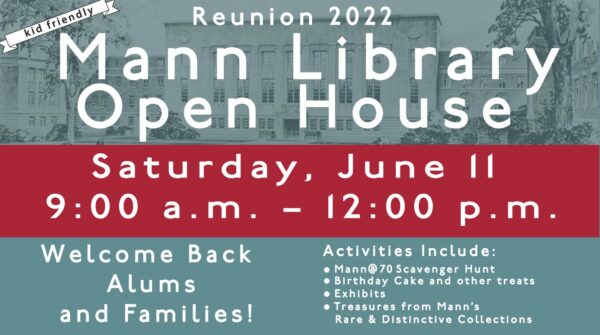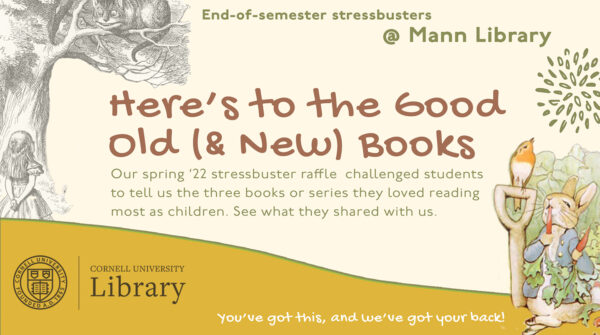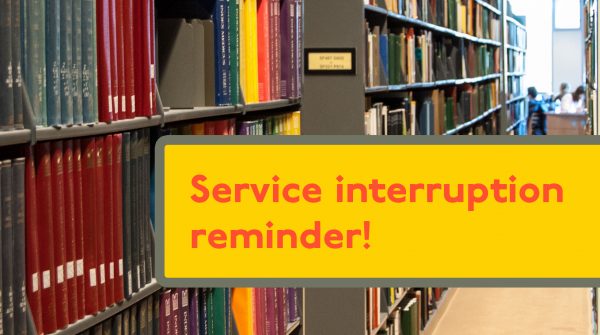Welcome back, alumni! There is are so many exciting events happening across campus for our returning Cornellians, and we hope that many of you will stop by Mann Library at some point during reunion weekend. See below for our complete line-up of programming!
Events & Activities
Hovey Brock (Catskill writer and artist), and Mark Whitmore (Director, New York State Hemlock Initiative)
Friday, June 6, 10 – 11am
Mann Gallery, 2nd floor, Mann Library
In conjunction with the exhibition “Invasive Species: A Collaborative Exhibit” on display in the Mann Library Gallery, Catskill artist and writer Hovey Brock and Cornell forest entomologist Mark Whitmore bring science and art together in an interactive program for Cornell alumni. Following Mark’s introduction to what science can currently tell us about the threat of hemlock woolly adelgid and other invasive pests currently afflicting North American forests, Hovey will involve audience members in a discussion of why environmental art matters in our quest for solutions to the climate crisis. All art evokes emotions, and environmental art reflects and channels the emotions—sadness, anger, distress—that we feel about the impacts of a rapidly warming planet: floods, fires, vanishing species and habitats. Maybe you have seen those impacts in your own back yard? The feedback you give as part of the discussion will be added to the exhibit currently on display in the Mann Gallery. We look forward to your input!
Making Ecoart: An Introductory Workshop
Friday, June 6, 11am – 12pm
Mann Library Lobby (1st floor)
Mann Library cordially invites Cornell alums to try their hand at ecoart—an artistic practice that uses natural materials for creative work that engages viewers more deeply with the environmental challenges of our day. In conjunction with the cross-disciplinary installation “Invasive Species: A Collaborative Exhibit” on display in the Mann Library Gallery, artist Anna Melhorn (MSc candidate, Natural Resources & the Environment) will lead a family-friendly workshop that introduces participants to the process of creating artwork with sustainably gathered forest materials. Space is limited to the first 30 participants.
Exhibits
Invasive Species: A Collaborative Exhibit
Exhibit, Mann Library Gallery (2nd floor)
Thu & Fri, 8am – 5pm, Sat 12 – 5pm
Invasive pests are a growing threat to the health of forests both in the American Northeast and other regions of the world. A collaborative cross disciplinary exhibit in the Mann Library Gallery spotlights some of most concerning current cases–such as the Hemlock Woolly Adelgid and the Spotted Lantern Fly–and draws attention to the new perspectives and fresh ways of engaging that can emerge where science and the fine arts meet. Featured are contributions by the New York State Hemlock Initiative (NYSHI), Catskill writer and artist Hovey Brock, and students from the interdisciplinary field class Earth Projects.
The Power of Food: Confronting Climate Change One Meal at a Time
Exhibit, Mann Library lobby,
Thu & Fri, 8am – 5pm, Sat 12 – 5pm
Food is essential for life, but it is also emotive, personal, and deeply embedded in our cultures and family histories. The new Mann Library lobby exhibit The Power of Food: Confronting Climate Change One Meal at a Time showcases ways in which climate change is impacting the flavors, nutritional quality, and prices of the foods we love and need. Providing insight into how changes in the climate are impacting what we eat, the exhibit–a collaboration between Mann Library, the students of the course “Climate Change and Your Future” (ALS 1150), and Dr. Michael Hoffman, lead author of “Our Changing Menu” (Cornell University Press, 2021)–this exhibit also spotlights the ways that thinking about food can catalyze ideas and energy for taking action and making positive change possible.
